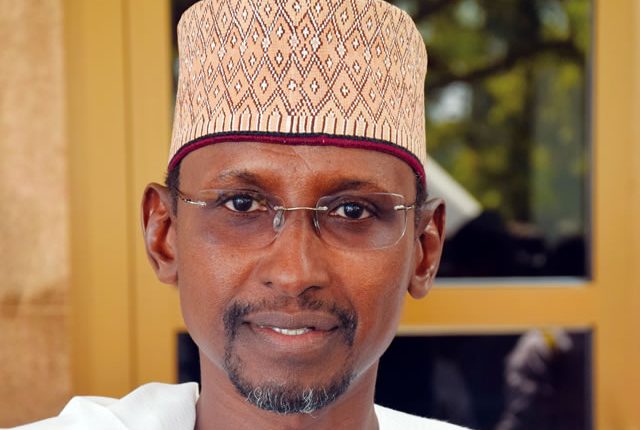Used syringes and drips, diapers, plastic bottles and other pollutants are littering the waters in the Lower Usuma Dam in Abuja, considered the only source of portable water for residents of the Federal Capital Territory (FCT).

Recent researches confirming the development may have prompted the FCT Water Board to call for urgent actions to curb the pollution of the dam.
Deputy Director of FCT Water Board, Dr. Victoria Anyakara, while speaking at a multi-sectoral dialogue on waste management organised by Stewards of the Environment for Sustainable Change Initiative (SESCI) with the support of the German Green foundation, Heinrich Boell Stiftung Nigeria, the Japan International Cooperation Agency (JICA) and the Abuja Environmental Protection Agency (AEPB) on February 19, 2020, lamented the increasing presence of healthcare waste and used plastics in the lower part of the dam.
She, however, assured the general public of the safety of treated water supplied to the city.
Dr Anyakara called on NGOs, government agencies and surrounding communities along inlet water areas like the Mpape and Ushafa communities to take necessary steps to deter the public from dumping waste and practicing open defecation in and around the water bodies.
According to her, these unhygienic practices increase the cost of treating the water and pose a major health threat to communities around the area including the Ushafa community that fish and farm around the dam.
While seeking low hanging fruits to prevent the poor handling of healthcare waste and plastic pollution in Abuja and Nigeria, the FCT Water Board says its doors are open for more research and laboratory testing of its treated water, reservoirs and water supplied into the city for the presence of microplastics and healthcare wastes.
The Board added that measures would be taken to curb pollution of the dam including provisions of nets across inlet channels and planting of trees as buffer zones with community farmers.
The SESCI in its report and deliberations called for immediate interventions and actions by the FCT Administration and Bwari Area Council in providing effective waste management services for residents of Mpape and its environs and provisions of toilets to curb the practice of open defecation.
The group also urged the Bwari local government chairman, the Federal Ministry of Water Resources and the Presidency to make budgetary provisions to address the impending waste pollution around the Usuma Dam, as such a negligence may escalate into a national health crisis.
SESCI, while commending the efforts of the FCT Water Board to curb waste pollution in the lower dam, also called on traditional leaders in Mpape and Ushafa community in the Bwari area council to mobilise youths to work closely with the AEPB, the Satellite Town Development Agency (STDA), and the FCT Water Boards to sensitise and explore local initiatives to ensure the proper water, sanitation and hygiene community waste.
Dr. Ifenna Ilechukwu, a lecturer in Industrial Chemistry at the Madonna University, Nigeria, confirmed that some healthcare and microplastics wastes were found in the influent rivers leading to the dam and the receiving dam itself.
Responding to the poor handling of healthcare waste at collection, even after few hospitals properly sort and separate their waste, the Director of Solid Waste Management the Abuja Environmental Protection Board (AEPB) Mr. Amos Odunfa, explained that the board is working with the Health and Human Services Secretariat of FCT to develop policies that will ensure effective management of waste from healthcare facilities.
He added that more funds and increased private sector investments are needed in the handling of specialised wastes such as healthcare waste.
By Aniebiet Obot
